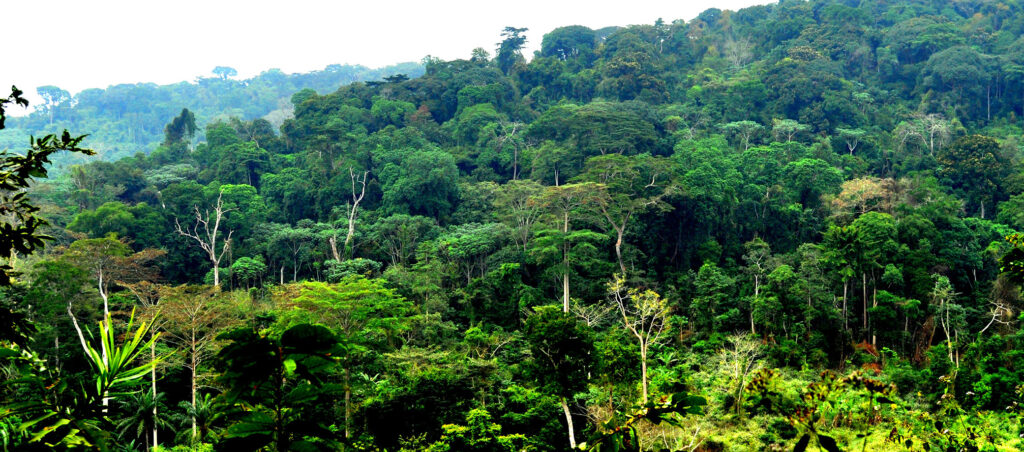
- B.S. in Environmental Science
- Center for Tropical Research
- Congo Basin Institute
- Institute of Environment and Sustainability
The Ebony Project and opportunities for expansion to West Africa
Home to more than 10,000 species and spanning across more than 5 countries, the Congo Basin is among the world’s largest rain forests, second only to the Amazon – and…
Home to more than 10,000 species and spanning across more than 5 countries, the Congo Basin is among the world’s largest rain forests, second only to the Amazon – and it is slowly disappearing. This treasured ecosystem supports the prized ebony tree; long sought after for its superior quality, tone, and beautiful dark hue in traditional musical instruments. However, according to The International Union for Conservation of Nature, ebony is now a vulnerable species due to uncontrolled illegal logging.
A decade ago, information on the ebony tree was nearly non-existent, yet this has changed drastically within the past 4 years through research of “the Ebony Project” by the Congo Basin Institute (CBI), through partnership with Taylor Guitars, a leading guitar manufacturer. Taylor guitars has recognized the need to protect the future of the species and has shifted their business model to focus on harvesting ebony in a sustainable fashion. As the 2020 Ebony Team, we aim to broaden knowledge of the ebony species and to expand ebony restoration opportunities in support of these goals. Through our collective research, we will utilize knowledge of the distribution of the ebony species and its pollinators to implement a successful and sustainable growth model for ebony.
The sustainable production of guitars not only concerns the conservation of ebony trees, but the health of local Cameroonian communities as well. These communities experience first-hand the effects of deforestation when their livelihoods are dependent on harvesting local resources. It is vital to develop a strong connection with the people of Cameroon, who will benefit from the research done to promote sustainable practices within their homeland.
Our goal this year is to figure out the most sustainable way to expand the work of the Ebony Project to areas of Cameroon in a manner that is inclusive and considerate of the local villages. This includes researching the history of the development of Cameroon, community dynamics, and the ecology of ebony, and developing future opportunities from case studies of successful reforestation and agroforestry efforts elsewhere to ensure that this project can secure sustainable ebony harvesting and community progression in the long term. Additionally, the project will expand to include villages south of the Dja Reserve (a major landmass within southeastern Cameroon), where effective reforestation techniques that benefit ebony populations and the surrounding local communities have strong potential for growth.
Deforestation can be minimized, vulnerable species such as ebony can be protected, and sustainable development can be achieved for the benefit of Cameroon and the world. We hope to develop manageable strategies to further community conservation within Cameroon and provide a greener future for everyone involved in the Ebony Project.
Client: Taylor Guitars
Faculty Advisor: Kevin Njabo
Student Team: Breezy Carreno, Ryan Chung, Madison Desilva, Kevin Liu, Melissa Sandoval, Ciara Turner.


